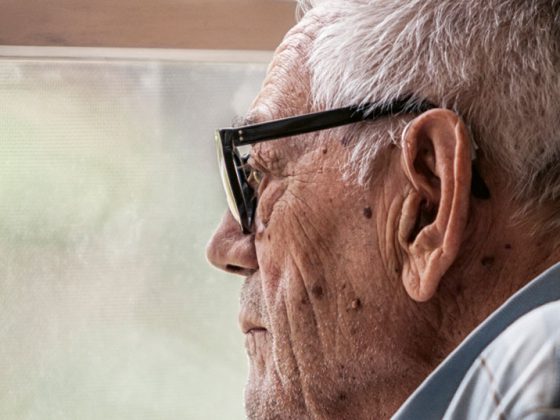Treating the critically ill demands the highest levels of concentration, up-to-date knowledge and rapid action from hospital staff. The Congress of Neurointensive Medicine therefore explicitly addressed scientific advances, collaboration between disciplines, and ICU processes. From research to practice was the claim of the diverse exchange among neuromedical specialties. Among other things, the focus was on interprofessional delirium management.
One of the common complications in the ICU is the development of delirium. It is characterized by confusion, impaired attention, orientation, and consciousness. Because it is associated with increased morbidity and mortality, it should be detected early. But this is fraught with challenges, especially in patients who are unconscious. The development of delirium in the context of the post-ICU syndrome can also have serious consequences, as Prof. Julian Bösel, MD, Kassel (Germany), pointed out. Post-Intensive Care Syndrome (PICS) includes physical, cognitive and psychological symptoms, particularly decreased resilience, muscle weakness, impaired concentration and memory. The alternative term “transit syndrome” suggests a temporary illness. However, delirium is not only associated with increased lethality, but also longer hospital stay and poorer treatment outcome.
However, nursing staff in particular have the opportunity to detect the first symptoms of delirium and should therefore receive special training, especially in prevention. Acute cognitive impairment is often still viewed as an unavoidable consequence of the severity of the underlying illness or appears to be the effect of the various precipitating factors of the ICU environment. Dr. med. Peter Nydahl, Kiel (D), therefore advocated an interprofessional approach to delirium management. The team of physicians, therapists and nurses must work closely together.
Development of a scoring system
Therefore, a Munich research group presented their results regarding a clinical scoring system for risk stratification of stroke patients with quantitative impairment of consciousness [1]. Inclusion criteria were defined as impaired consciousness based on GCS <15 and/or NIHSS vigilance category >0 in addition to ischemic or hemorrhagic stroke. Anamnestic, clinical, and apparative-imaging characterization was performed. The association of parameters with clinical diagnosis of delirium was examined by Fisher’s exact tests and with logistic regression models. Between April and July 2021, 106 patients with a mean age of 71.5 years met inclusion criteria. During the inpatient course, 50% developed delirium. Age, desiccosis, and a history of neurodegenerative disease or tumor disease were statistically significantly associated with the occurrence of delirium. For the parameters assessed by apparatus, a correlation was shown for global brain volume reduction on cCT, Fazekas score, hemoglobin level, and severity of encephalopathy on EEG. The study demonstrated that both clinical and imaging parameters were significantly associated with the development of delirium in stroke patients. These should be used as the basis for developing a score.
A research group from Stuttgart dealt with a similar objective by aiming to detect delirium at an early stage with the help of a screening tool [2]. For this purpose, the Delirium Observation Screen ing Scale (DOSS) according to Schuurmann was implemented as a screening tool in the electronic patient documentation on the stroke unit in 2021. The aim is to systematically detect an abnormal DOSS in all patients ≥65 years of age. With the help of the DOSS, regular screening of elderly patients with acute stroke can be easily integrated into the daily work of the nursing staff. Patients with abnormal values ≥3 were further evaluated for clinical neurological presentation and infarct location. DOSS screening was used in 72% of the 365 patients. There were 105 patients (28%) with abnormal values. There was a correlation of prominent DOSS with increasing age, greater symptom severity, greater infarct extent, and subcortical vascular leukoencephalopathy as cerebral preexisting damage.
In Zurich, interprofessional delirium management is studied in relation to reality orientation training (ROT) [3]. This, along with cognitive stimulation and sleep hygiene, is among the most effective measures to reduce delirium. The use of ROT involves calm, adapted communication with the use of assistive devices such as glasses. Further, for example, a structured daily routine and the integration of personal items are essential. In addition, the orientation board is used as an aid. The structure of the content is standardized. Thus, the content is usually worked out together in occupational therapy. Thus, this includes the information according to the patient capabilities name, place, date, name of the supervising professionals and other information. In everyday hospital life, the orientation board is integrated interprofessionally. Practical experience shows that the consistent application of the RED together with the orientation board is essential. The patients receive the necessary information, which they can process, and are thus promoted in their rehabilitation process. Overall, this has a positive effect on the course of patients with delirium.
Evidence-based pharmacological intervention
However, Prof. Dr. med. P. Pittermann, Wiesbaden (D), pointed out that despite an increasing number of publications, the evidence base on pharmacotherapy of delirium is limited [4]. Heterogeneity of studies, insufficiently clear endpoints, lack of use of survival analysis methods regarding delirium incidence and duration, methodological errors of statistical analysis, and diagnosis by screening tests without examination of differential diagnoses contribute to contradictory results. Only alpha-2 agonists were shown to shorten the duration of ventilation, whereas antipsychotics as a group showed superiority over placebo in terms of response rate and time to response, among others. Nevertheless, evidence-based symptom-oriented pharmacotherapy of delirium is possible.
Symptomatic treatment according to Richmond Agitation Sedation Scale (RASS) and symptom-oriented pharmacotherapy taking into account concomitant diseases such as dementia or withdrawal syndrome take into account contradictory study results suggesting that delirium is not a disease entity of singular cause but a symptom complex of various interacting causes.
Congress: Annual Meeting of the DGNI and DSG (ANIM).
Literature:
- Wischmann J, Kremer P, Hinske L, et al: Delirium in the stroke unit: a new clinical score. ANIM 2022, Free papers I.
- Bott CC, Alf F, Spank J et al: Systematic delirium screening using Delir Observation Screening Scale (DOSS) in the stroke unit: Infarct characteristics in delirious patients. ANIM 2022, PSS ePoster.
- Schubiger N, Mlynski H: Interprofessional delirium management in relation to reality orientation training (ROT) in the Stroke Center USZ, ANIM 2022, poster session VI.
- Pittermann P: Evid4ence-based pharmacotherapy of delirium – as contradictory as the data? ANIM 2022, Poster Session II.
InFo NEUROLOGY & PSYCHIATRY 2022; 20(3): 30-31.











